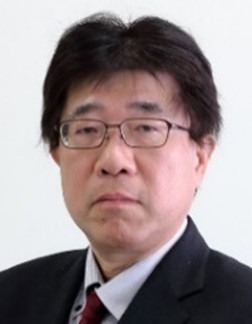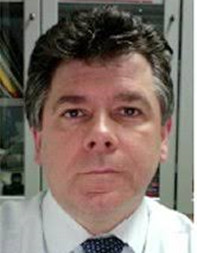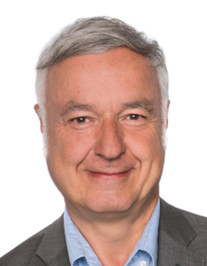Description
The development of a common network infrastructure platform is expected to facilitate the effective deployment of various IoT services in terms of reduction in CAPEX and OPEX and increased usability. This will be particularly critical in a new scenario where from “just data pipes” telecommunications will need to provide secure, reliable “cloud continuum” agile infrastructure aimed to accelerate the introduction of new services integrating physical and virtual entities. For example, the deployment of a platform for abstraction of devices and translation of a unified data model may be effective, when several services are overlaid in a specific area, such as in the context of smart cities and communities. Such a platform may be referred to as a “City OS.” In addition to this example, several types of platforms will be presented considering the always more critical issue of “optimization” in terms of reliability, cost reduction, efficiencient use of resources. Therefore, we need to discuss the scope and functions of these platforms. Several layers are specified according to the IoT reference model, including device, network, data analysis, operations, and business layers. Therefore, we need to discuss which layers can be configured by the platform. Moreover, international standardization also plays an important role in establishing a widespread consensus and promoting popularization. Therefore, we also need to survey standardization trends in IoT platforms and discuss the differing views on future evolution of these methods in strategic scenarios.
Technologies of interest
Generally, IoT platforms comprise four aspects: devices, transport networks, service networks, and data analysis. This workshop focuses on these technologies and their respective standardizations. Concretely, the following technologies are included.
- Devices: physical interfaces, low-power wide-area (LPWA) networks, wireless sensor network (WSN) solutions, IoT gateways, embedded intelligence, etc.
- Transport networks: 5G (including private 5G solutions and interworking between 5G and optical networks), reliable and low-latency network control, etc.
- Service networks: MQTT, data distribution service (DDS), information-centric networking (ICN), middleware for IoT, etc.
- Data analysis: unified data models such as FIWARE and oneM2M, semantic interoperability, etc.
This workshop will focus on proposals related to architecture and control mechanisms for QoS, reliability, and security of these technologies. In addition, this workshop will introduce use cases relevant to these technologies, for example, smart cities and communities, industrial applications, agriculture, transportation systems, etc. Moreover, this workshop will survey standardization trends related to these technologies along with use cases and will also discuss strategic scenarios toward standardization aimed to provide efficiency and reliability.
Main topics
This workshop will discuss the IoT platform in terms of three aspects: technology, standardization, and use cases. The technologies related to the first aspect identified in Section 2 will be discussed in terms of configuring the IoT platform. Standardization plays a key role in promoting these technologies and establishing a wide consensus on their deployment. Therefore, trends involving these technologies and perspectives on their future development will be discussed in terms of the standardization of the second aspect mentioned above, along with strategies to promote their adoption through standardization. Moreover, the relationship between technologies and real service deployment requirements will be clarified. Finally, use cases based on these technologies will be discussed with regard to the third aspect. The following topics are within the scope of this workshop.
A: Technology
- Wireless sensor networks
- Broadband networks such as mobile and optical networks and combinations thereof
- Application-layer networks such as MQTT, CoAP, ICN/NDN, DDS, and their implementations
- Syntactic and/or semantic interoperability
- Quality and reliability control
- Federated and distributed approaches for Machine Learning and Artificial Intelligence
B: Use cases
- Smart cities and communities using IoT platforms
- Industrial fields, such as manufacturing and industrial facilities
- Agriculture and related fields
- Transportation systems and associated critical infrastructure
C: Standardization
- ITU, ISO/IEC JTC1, IEC, and ISO
- Forum-based standards
Important Dates:
- Paper submission:
13 June 2022 August 1st, 2022
- Acceptance Notification:
8 July 2022 August 16th, 2022
- Camera-Ready Paper Submission Deadline:
31 July 2022 August 31st, 2022
Paper should be six (6) pages in length. The conference allows up to two additional pages for a maximum length of eight (8) pages with payment of extra page charges once the paper has been accepted.
Once the paper you submitted has been reviewed and accepted you will be notified about uploading a final version of the paper for publication in the Proceedings and IEEE Xplore.
Chairs
Dr. Tetsuya Yokotani, Professor, Kanazawa Institute of Technology, Japan

Tetsuya Yokotani received B.S., M.S, and Ph.D. degrees on information science from the Tokyo University of Science in 1985, 1987, and 1997, respectively. He joined the Mitsubishi Electric Corporation in 1987. Since then, he has researched high-speed data communication networks, optical access networks, home networks and performance evaluation technologies of these networks based on queueing analysis mainly in the Information Technology R&D Center as a researcher, a manager, and a general manager. In 2015, he moved to the Kanazawa Institute of Technology as a professor of College of engineering. Since then, he has engaged research and education on networks for various IoT services and has proposed standardization in these related areas. In his activities of academic society, he has experienced chairs of industry/business forum and TPC chairs of CQRM, Communication Quality, Reliability and Modeling, symposia in IEEE ICC and GLOBECOM, Vice chair and Chair of CQR TC, Technical Committee on Communication Quality and Reliability, in IEEE ComSoc. Currently, he is a chair of advisory board of CQR TC. Moreover, he has experienced key positions of the national society, IEICE, The Institute of Electronics, Information and Communication Engineers. He is a fellow member of IEICE. Moreover, in standardization, he has promoted optical access networks and home networks in ITU-T SG15 as several editors and associate Rapporteur. He also has joined ITU-T SG20 and related focus groups, e.g., FG-DPM, Focus Group on Data Processing and Management, as editors. Currently, he has developed IoT data change platforms in ISO/IEC JTC1/SC41 as a project editor.
Dr. Stefano Giordano, Professor, The University of Pisa, Italy

Stefano Giordano is full professor at the Department of Information Engineering of the University of Pisa where he is the responsible of the Telecommunication Networks Laboratories giving lectures both at the University of Pisa and the Italian Navy Academy. He is senior member of the IEEE Comsoc and was Chair of the Communication Systems Integration and Modelling (CSIM) Technical Committee. He is member of IFIP WG 6.3 (Performance Evaluation of Communication Systems) and of the ISOC (Internet Society) since its foundation in 1992. He is member of CNIT (the Italian National Consortium for Telecommunications) and of the GTTI (Group for Telecommunications and Information Theory). He was member of the board of governors of the italian Chapter of ISOC and of the CQR and TACTILE INTERNET TC. He founded with Juniper Networks the first European Juniper Networks Higher Learning Center. He was/is reviewer of the NSF in USA, of the EU, of the Italian Ministry of Economic Development, of Italian Ministry of Research (member of the “albo” of experts of the Ministry of Economic Development). He is author of more that 300 papers on peer reviewed international conferences and journals on the practical and theoretical aspect of modern networking including SDN, NFV and IoT. He was the responsible for the participation of the University of Pisa to the Euro-NGI (Next Generation Internet in Europe) Network of Excellence. He is member of the PhD council on Information Engineering of Univ of Pisa. He was member of the spin-off committee of the University of Pisa. From the research activities of his group two spin-off companies (Nextworks and Netresults) were created. He was co-founder of the CUBIT consortium where he is now president.
Keynote Speaker
Dr. François Coallier

François Coallier is full professor at the Department of Software and IT Engineering at the École de technologie supérieure (ÉTS). He was CIO of ÉTS between 2010 and 2016 and the founding chair of ÉTS’ Department of Software and IT Engineering from its creation in 2004 till 2010. Dr. Coallier has been continuously involved in standards development since 1984. He was the international Secretary of the Joint ISO and IEC subcommittee responsible for the elaboration of standards in Software and Systems Engineering (ISO/IEC JTC1/SC7) and its Chair from 1997 to 2017. Dr. Coallier is currently the international Chair of ISO/IEC JTC1/SC41, the subcommittee responsible for the elaboration of standards for Internet of Things and Digital Twin since its creation in 2016, the convener of the newly created IEC Standardization Evaluation Group (SEG12) on Biodigital Convergence and the co-convener of the Methodology Group of IEC SG12 (Digital transformation) . He is also a member of the Board of the Standards Council of Canada (SCC). François Coallier has a B.Sc. in Environmental Biology, and a B. Eng. in Engineering Physics from McGill University and an M.A.Sc. and Ph.D. in Electrical Engineering from Montréal’s École Polytechnique. He is a Fellow of the American Association of the Advancement of Sciences (AAAS), a Senior Member of the IEEE and an IEEE Computer Society Golden Core Member. https://ca.linkedin.com/in/fcoallier
Technical Programme
Organized on – 10th November, 2022 at 15:00 – 19:00 JST
| Time (JPT) |
Description |
| 15:00 |
15:10 |
Opening Remark |
| 15:10 |
15:45 |
Keynote
IoT standardization strategies in ISO/IEC JTC 1/SC 41
François Coallier: Department of Software and IT Engineering, École de technologie supérieure, Chairperson of ISO/IEC JTC1/SC41 |
| 15:45 |
16:15 |
Invited Talk, Technology
Study of resource-saving secure communication protocols for IoT devices
Akinori Yoshioka, Masahiko Murakami, Takaharu Suzuki(Presenter): HI Corporation |
| 16:15 |
16:45 |
Invited Talk, Use case
ICT/IoT Platform issues for small local cities
Yasuo Tan: Japan Advanced Institute of Science and Technology |
| 16:45 |
17:15 |
Invited Talk, Standardization
FIWARE: Standard-based Open Source Components for Cross-Domain IoT Platforms
Martin Bauer: NEC Laboratories Europe |
| 17:15 |
17:30 |
Break |
| 17:30 |
18:00 |
Invited Talk, Standardization
Sub-1GHz Band IEEE Wireless Standards for Internet of Things
Takenori Sumi (Presenter) : Mitsubishi Electric Corporation / Shizuoka University, Yukimasa Nagai: Mitsubishi Electric Corporation, Jianlin Guo: Mitsubishi Electric Research Laboratories Inc., Hiroshi Mineno: Shizuoka University |
| 18:00 |
18:25 |
Optimization of Polling-based MAC Schedule Considering Data Aggregation for In-vehicle UWB Wireless Networks
Hajime Migita: Kobe University Taiyo Tanaka: Kobe University Shuji Yamaguchi: Kobe University Makoto Takenaka: Kobe University Patrick Finnerty: Kobe University Tomio Kamada: Konan University Chikara Ohta: Kobe University |
| 18:25 |
18:50 |
SLA-Gα: The next generation of SLAs for IoT
Kashif Rabbani: Ulster University Adrian Moore: Ulster University Joseph Rafferty: Ulster University |
| 18:50 |
19:00 |
Closing Remark |
If you have any questions, please contact Dr. Tetsuya: yokotani@neptune.kanazawa-it.ac.jp





